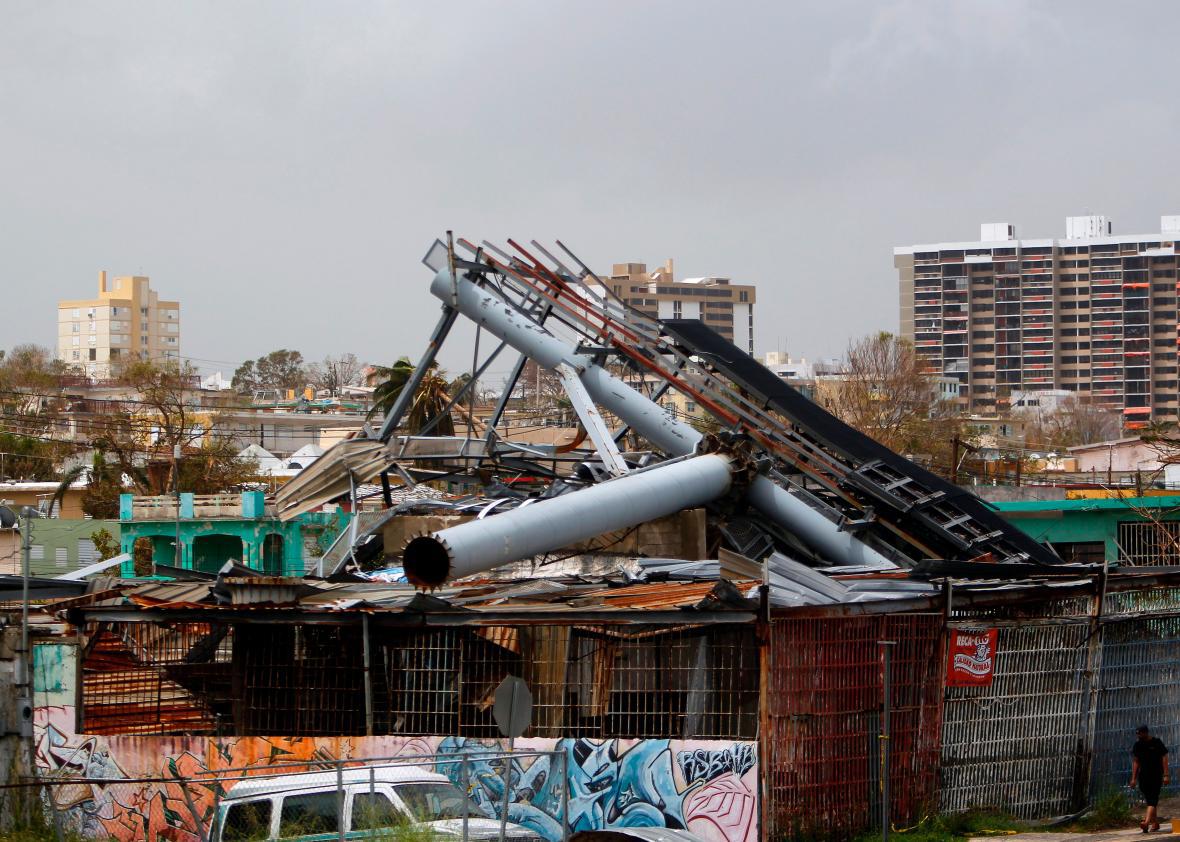President Trump has waived the Jones Act for 10 days to facilitate the shipment of Hurricane Maria aid to Puerto Rico. From Bloomberg:
The 1920 Jones Act is a maritime law requiring shipments of goods between two U.S. ports to be made with American-flagged vessels, manned by American crews. Pressure was mounting on the Trump administration to lift the restrictions regarding supplies being sent to help Puerto Rico recover from Hurricane Maria, which ravaged the U.S. territory more than a week ago.
The administration had come under fire in part because it originally refused to waive the Jones Act for more than a week after Hurricane Maria, even though it had granted similar waivers amid Hurricanes Harvey and Irma. The Department of Homeland Security had said in those cases the waivers had been justified by the shutting of fuel pipelines in the storms, which could have triggered shortages.
The office of Sen. John McCain has said that the Jones Act makes it twice as expensive to ship goods from the mainland to Puerto Rico as it is to ship them from foreign ports, a burden that the University of Puerto Rico has estimated costs the island $537 million a year. Matthew Yglesias explained the act’s distortions Thursday at Vox:
Puerto Rico, in particular, is so close to the United States that the most cost-effective way to transport many goods there would be for ships to stop off en route to a mainland port. But under the Jones Act, foreign-originating goods must be dropped off in Jacksonville and then shipped to Puerto Rico via an exorbitantly expensive Jones-compliant vessel. Likewise, it costs far more to ship US-produced goods to Puerto Rico than it does to Jamaica. …
In the US Virgin Islands, which are exempt from the law, US-made goods are about half as expensive, while the cost of living in Puerto Rico is 13 percent higher than on the American mainland. Food on Puerto Rico costs twice as much as it does in Florida, and that’s before the devastation of the island’s agriculture by Hurricane Maria.
While shipping the aid to Puerto Rico is one challenge, the U.S. Homeland Security Department says that moving the aid from ports into towns and neighborhoods is a much larger problem. Bloomberg reported Thursday morning that food and supplies are sitting untouched at the understaffed and damaged port of San Juan:
The U.S. government has now shipped 4 million meals and 1.59 million gallons of water. Domestic firms have moved 9,500 containers to Puerto Rico, according to the American Maritime Partnership. One ship with more than 35 million pounds, or the equivalent of 1,900 planes, arrived Sunday.
Trucks are ready to be loaded with the goods and precious diesel for backup generators, but workers aren’t around to drive. Instead, they’re caring for families and cleaning up flood damage – and contending with the curfew.
The buildings that would receive supplies are destroyed and without electricity. … The transport companies that have staff available and diesel on hand encounter downed poles and power lines while navigating 80,000-pound tractor-trailers on delicate washed-out roads.
